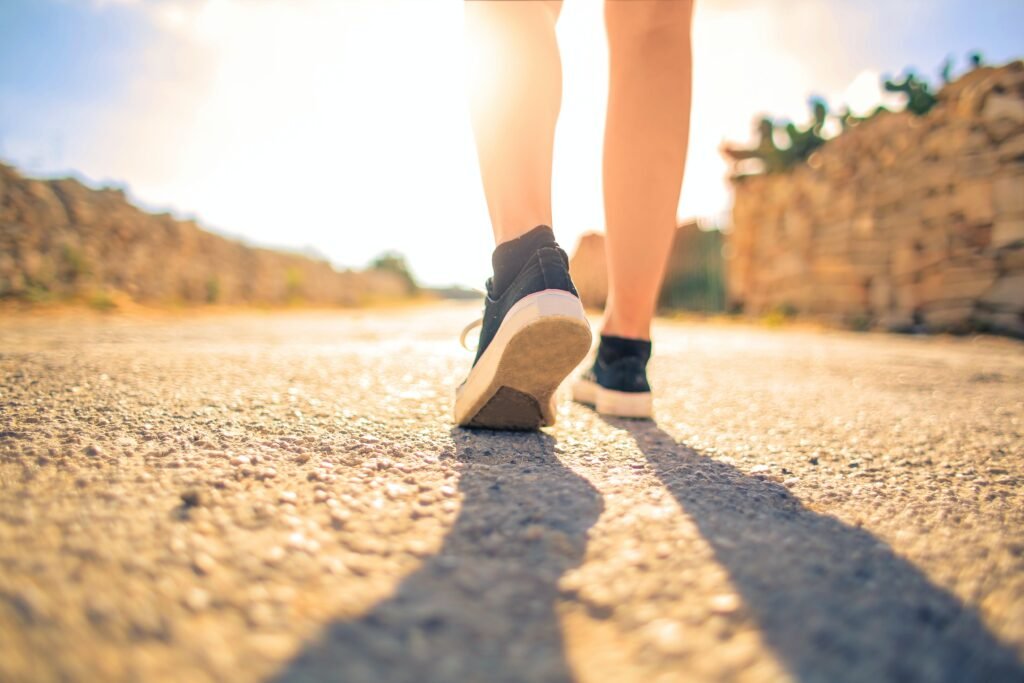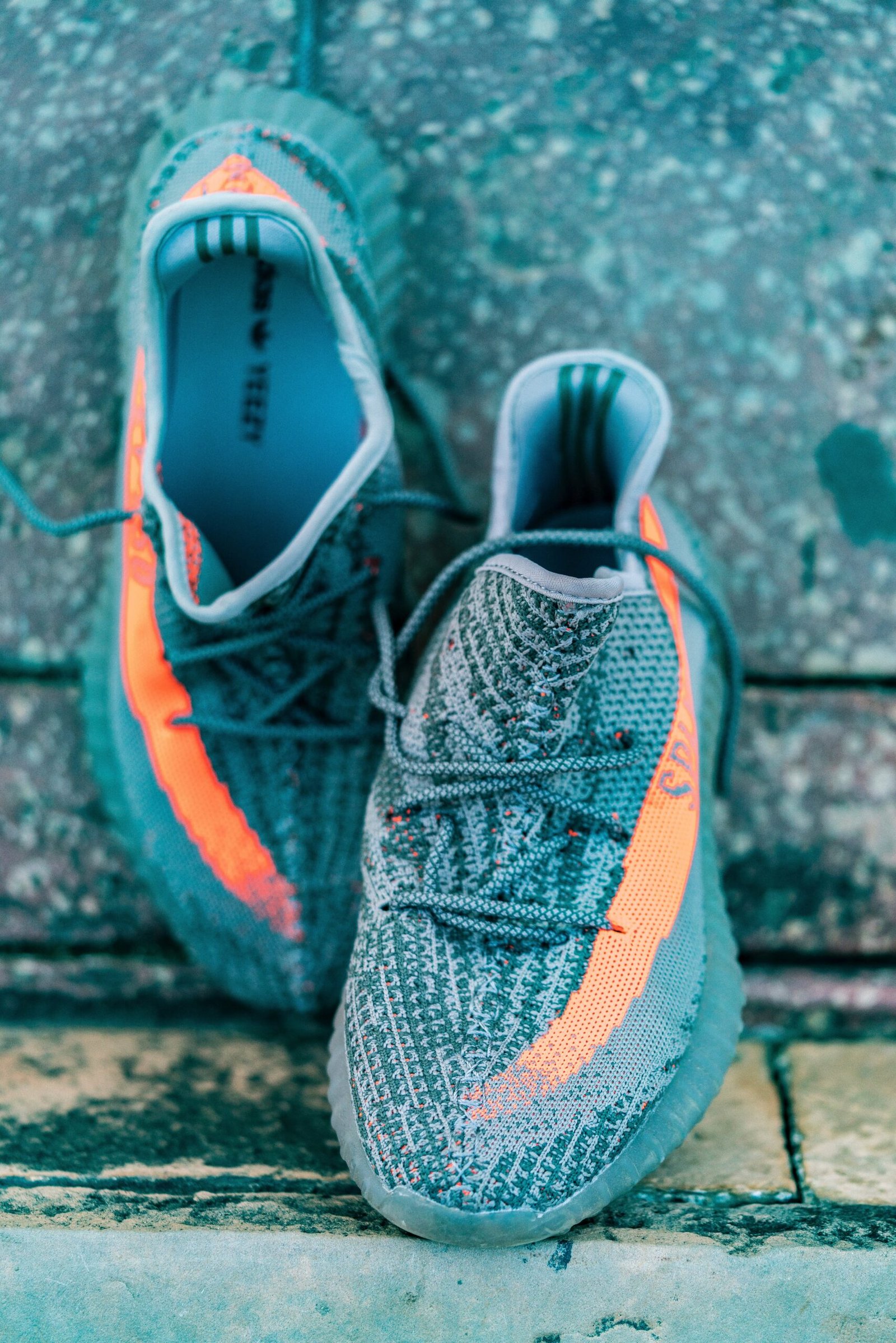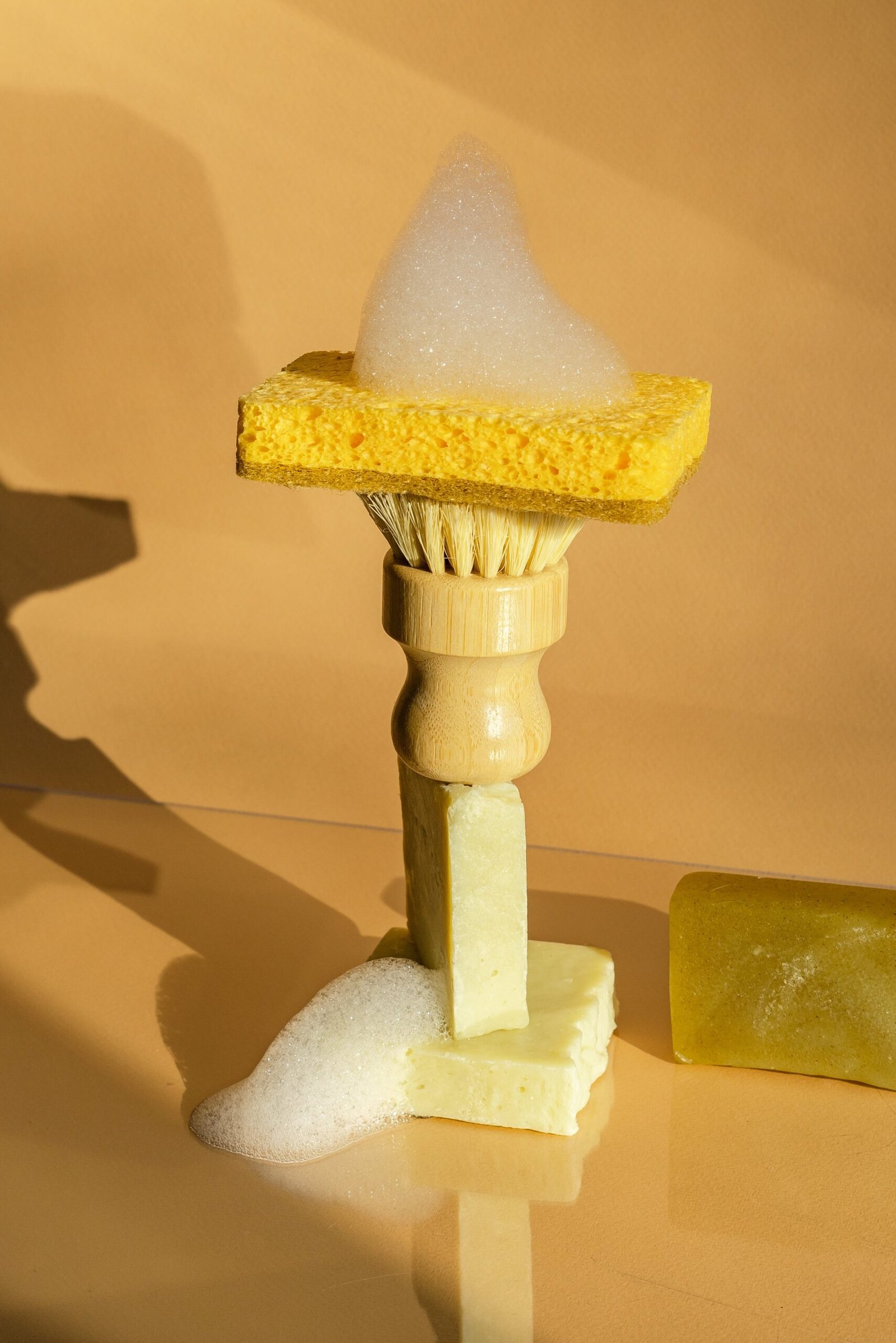If you’re looking for a way to make your wardrobe more eco-friendly, switching to sustainable shoes is one of the easiest and most impactful changes you can make. Shoes are one of the most resource-intensive and polluting items in the fashion industry, and they often end up in landfills or oceans after a short lifespan. By choosing shoes that are made from natural, recycled, or biodegradable materials, you can reduce your environmental footprint, support ethical and fair trade practices, and enjoy comfortable and stylish footwear that lasts.
But how do you find the best sustainable shoes for your needs? With so many brands and options out there, it can be hard to navigate the green shoe market and find the perfect pair for your style, budget, and values. That’s why we’ve created this ultimate guide to sustainable shoes, where we’ll cover everything you need to know about eco-friendly footwear, from the materials and certifications to look for, to the best brands and products for every occasion.

In this guide, you’ll learn:
- What makes a shoe sustainable and why it matters
- The different types of sustainable shoe materials and their pros and cons
- The certifications and labels that indicate a shoe’s sustainability and ethics
- The best sustainable shoe brands for women and men, categorized by style, price, and function
- The best tips and resources for finding, buying, and caring for your sustainable shoes
Ready to step into a greener future? Let’s get started!
What Makes a Shoe Sustainable and Why It Matters
Before we dive into the details of sustainable shoe materials, certifications, and brands, let’s first define what we mean by sustainable shoes and why they are important.
Sustainable shoes are shoes that are designed and produced with minimal environmental impact and social harm. They are made from materials that are natural, organic, recycled, or biodegradable, and that do not contain toxic chemicals or animal products. They are also manufactured in factories that use renewable energy, conserve water and resources, and ensure fair wages and safe working conditions for their workers. Additionally, sustainable shoes are durable, repairable, and recyclable, which means they last longer and generate less waste.
Why does it matter to choose sustainable shoes over conventional ones? Here are some of the main reasons:
- Conventional shoes are made from synthetic materials, such as plastic, rubber, and nylon, that are derived from fossil fuels and emit greenhouse gases during their production and disposal. These materials also take hundreds of years to decompose and often end up in landfills or oceans, where they pollute the soil and water and harm wildlife. Sustainable shoes, on the other hand, use materials that are renewable, biodegradable, or recyclable, and that have a lower carbon footprint.
- Conventional shoes often use leather, wool, silk, or fur, which are animal products that involve animal suffering, deforestation, land degradation, and water pollution. Sustainable shoes avoid animal products and opt for vegan or plant-based alternatives, such as cork, hemp, or pineapple leather, that are cruelty-free and eco-friendly.
- Conventional shoes are often produced in sweatshops, where workers are exposed to hazardous chemicals, long hours, low wages, and poor health and safety standards. Sustainable shoes are made in factories that follow fair trade and ethical principles, such as paying living wages, providing benefits, respecting labor rights, and ensuring a safe and healthy work environment.
- Conventional shoes are often low-quality and fast-fashion items, which means they are cheaply made and quickly discarded, contributing to the overconsumption and waste problem in the fashion industry. Sustainable shoes are high-quality and timeless items, which means they are well-made and designed to last, encouraging a more conscious and responsible consumption behavior.
As you can see, choosing sustainable shoes over conventional ones can make a big difference for the planet, the animals, and the people involved in the shoe industry. By opting for eco-friendly and ethical footwear, you can reduce your environmental impact, support social justice, and enjoy comfortable and stylish shoes that reflect your values.
The Different Types of Sustainable Shoe Materials and Their Pros and Cons
One of the main factors that determine the sustainability of a shoe is the material it is made from. There are many different types of sustainable shoe materials, each with its own advantages and disadvantages. Here are some of the most common ones and what you need to know about them:
Natural Materials
Natural materials are materials that come from nature and are not synthetically produced. They include materials such as cotton, hemp, linen, jute, bamboo, cork, wood, and natural rubber. These materials are generally renewable, biodegradable, and compostable, which means they can be grown again, break down naturally, and return to the soil. They also tend to be breathable, soft, and comfortable, which makes them ideal for shoes.
However, not all natural materials are equally sustainable. Some of them, such as conventional cotton, require a lot of water, pesticides, and fertilizers to grow, which can deplete and contaminate natural resources and harm biodiversity. Others, such as leather, wool, silk, or fur, involve animal exploitation, deforestation, and greenhouse gas emissions, which can cause animal suffering, habitat loss, and climate change. Therefore, when choosing natural materials for your shoes, you should look for organic, vegan, or certified options, such as organic cotton, hemp, cork, or FSC-certified wood, that are grown or sourced in a more sustainable and ethical way.
Recycled Materials
Recycled materials are materials that are made from waste or discarded products that are transformed into new products. They include materials such as recycled plastic, rubber, nylon, polyester, cotton, or leather. These materials are beneficial for the environment because they reduce the amount of waste that goes to landfills or oceans, save energy and resources that would otherwise be used to produce new materials, and prevent the emission of greenhouse gases that result from the decomposition or incineration of waste. They also tend to be durable, versatile, and affordable, which makes them suitable for shoes.
However, recycled materials are not perfect either. Some of them, such as recycled plastic or polyester, can still release microplastics into the water when washed, which can pollute the aquatic ecosystems and enter the food chain. Others, such as recycled leather, can still contain harmful chemicals or animal products, which can pose health risks or ethical issues. Therefore, when choosing recycled materials for your shoes, you should look for high-quality, certified, or blended options, such as rPET, ECONYL, or recycled cotton, that are recycled in a safe and efficient way and that minimize the use of virgin or synthetic materials.
Biodegradable Materials
Biodegradable materials are materials that can be decomposed by microorganisms, such as bacteria or fungi, into natural substances, such as water, carbon dioxide, or compost. They include materials such as PLA, TPU, mushroom leather, pineapple leather, or algae foam. These materials are advantageous for the environment because they reduce the amount of waste that accumulates in landfills or oceans, lower the carbon footprint of the products, and enrich the soil with nutrients. They also tend to be innovative, lightweight, and flexible, which makes them attractive for shoes.
However, biodegradable materials are not without challenges. Some of them, such as PLA or TPU, can only biodegrade under specific conditions, such as high temperature, humidity, or oxygen, which are not always available in the natural environment. Others, such as mushroom leather or pineapple leather, can have limited availability, durability, or performance, which can affect the quality or functionality of the shoes. Therefore, when choosing biodegradable materials for your shoes, you should look for reliable, tested, or certified options, such as OK Compost, BPI, or ASTM D6400, that are proven to biodegrade in a reasonable time and in a variety of settings.
The Certifications and Labels That Indicate a Shoe’s Sustainability and Ethics
Another factor that can help you determine the sustainability and ethics of a shoe is the certification or label it has. Certifications and labels are symbols or marks that indicate that a product, a material, or a process meets certain standards or criteria related to environmental, social, or animal welfare issues. They are usually issued by independent, third-party organizations that verify and audit the compliance of the products or the producers with the standards or criteria. They can provide you with more information, transparency, and assurance about the sustainability and ethics of the shoes you buy.
However, not all certifications and labels are equally trustworthy or meaningful. Some of them, such as organic, fair trade, or vegan, are well-established, widely recognized, and legally regulated, which means they have clear definitions, strict requirements, and rigorous controls. Others, such as eco-friendly, natural, or ethical, are vague, ambiguous, or self-declared, which means they have no clear definitions, no specific requirements, and no independent verification. Therefore, when looking for certifications and labels for your shoes, you should look for reputable, credible, and relevant ones, such as GOTS, Fairtrade, PETA, or B Corp, that are backed by solid evidence and that cover the aspects that matter to you.
Here are some of the most common and important certifications and labels that you can find on sustainable shoes and what they mean:
- GOTS (Global Organic Textile Standard): This is the leading certification for organic textiles, such as cotton, hemp, or linen. It ensures that the textiles are made from at least 70% organic fibers, that no harmful chemicals are used in the production, and that the workers are treated fairly and safely.
- Fairtrade: This is the most widely known certification for fair trade products, such as cotton, rubber, or leather. It ensures that the farmers and workers who produce the products are paid a fair price, that they have decent working conditions, and that they have a voice and a say in their communities.
- PETA (People for the Ethical Treatment of Animals): This is the largest animal rights organization in the world, and it offers several certifications and labels for vegan products, such as shoes, clothing, or cosmetics. It ensures that the products do not contain any animal products, such as leather, wool, silk, or fur, and that they are not tested on animals.
- B Corp (Benefit Corporation): This is a certification for businesses that meet the highest standards of social and environmental performance, accountability, and transparency. It ensures that the businesses have a positive impact on their workers, customers, communities, and the environment, and that they balance profit and purpose.
- Cradle to Cradle: This is a certification for products that are designed and made according to the principles of circular economy, which means that they eliminate waste and pollution, keep materials in use, and regenerate natural systems. It ensures that the products are made from safe and renewable materials, that they are designed for reuse and recycling, and that they have a positive impact on people and the planet.
These are just some examples of the certifications and labels that you can find on sustainable shoes, but there are many more that you can explore and learn about. You can use websites such as Ecolabel Index, Good On You, or Ethical Consumer to find and compare different certifications and labels and to discover more sustainable and ethical brands and products.
The Best Sustainable Shoes Brands for Women and Men, Categorized by Style, Price, and Function
Now that you know what to look for in terms of materials, certifications, and labels, you might be wondering where to find the best sustainable shoes for your needs. To help you with that, we’ve compiled a list of some of the best sustainable shoe brands for women and men, categorized by style, price, and function. Whether you’re looking for sneakers, boots, sandals, heels, flats, or slippers, we’ve got you covered. Here are our top picks for each category:
Sustainable Sneakers
Sneakers are one of the most popular and versatile types of shoes, and they can be worn for casual, sporty, or even formal occasions. However, conventional sneakers are also one of the most polluting and wasteful types of shoes, as they are made from synthetic materials, such as plastic, rubber, or nylon, that are hard to recycle and that release microplastics into the environment. Fortunately, there are many sustainable alternatives that are made from natural, recycled, or biodegradable materials, and that offer comfort, style, and performance. Here are some of the best sustainable sneaker brands for women and men:
1. Allbirds
This is one of the most famous and successful sustainable sneaker brands in the world, and it is known for its minimalist and comfortable designs. Allbirds sneakers are made from natural materials, such as merino wool, eucalyptus fiber, or sugarcane, that are soft, breathable, and moisture-wicking. They are also certified by B Corp, PETA, and FSC, and they have a low carbon footprint. Allbirds sneakers are available for women and men, and they come in various colors and styles, such as the Wool Runners, the Tree Dashers, or the Wool Loungers. The price range is from $95 to $135.
2. Veja
This is another well-known and respected sustainable sneaker brand, and it is known for its classic and trendy designs. Veja sneakers are made from organic, recycled, or vegan materials, such as cotton, rubber, leather, or corn, that are sourced from fair trade and ethical suppliers. They are also certified by B Corp, Fairtrade, and PETA, and they have a transparent and traceable supply chain. Veja sneakers are available for women and men, and they come in various colors and styles, such as the V-10, the Campo, or the Esplar. The price range is from $80 to $200.
3. Cariuma
This is a relatively new and fast-growing sustainable sneaker brand, and it is known for its colorful and fun designs. Cariuma sneakers are made from natural, recycled, or vegan materials, such as bamboo, cork, cotton, or sugarcane, that are durable, lightweight, and comfortable. They are also certified by B Corp, PETA, and FSC, and they plant two trees for every pair of shoes sold. Cariuma sneakers are available for women and men, and they come in various colors and styles, such as the OCA, the CATIBA, or the IBI. The price range is from $79 to $159.
4. Rothy’s
This is a popular and innovative sustainable sneaker brand, and it is known for its feminine and elegant designs. Rothy’s sneakers are made from recycled plastic bottles, which are transformed into a soft and flexible knit fabric. They are also machine-washable, vegan, and carbon-neutral, and they have a low-waste and circular production process. Rothy’s sneakers are available for women and girls, and they come in various colors and styles, such as the Lace Up, the Chelsea, or the Sneaker. The price range is from $65 to $165.
Sustainable Boots
Boots are another essential and versatile type of shoes, and they can be worn for different seasons, occasions, and activities. However, conventional boots are also one of the most harmful and unethical types of shoes, as they are often made from leather, wool, or fur, which involve animal cruelty, deforestation, and greenhouse gas emissions. Luckily, there are many sustainable alternatives that are made from vegan, recycled, or natural materials, and that offer durability, warmth, and protection. Here are some of the best sustainable boot brands for women and men:
1. NAE (No Animal Exploitation) Vegan Shoes
This is a Portuguese sustainable boot brand, and it is known for its stylish and ethical designs. NAE boots are made from vegan, recycled, or natural materials, such as cork, pineapple leather, organic cotton, or rubber, that are cruelty-free and eco-friendly. They are also certified by PETA, OEKO-TEX, and GOTS, and they have a transparent and responsible production process. NAE boots are available for women and men, and they come in various colors and styles, such as the Etna, the Re-Cork, or the Basic. The price range is from $100 to $300.
2. Will’s Vegan Shoes
This is a British sustainable boot brand, and it is known for its classic and quality designs. Will’s Vegan Shoes boots are made from vegan, recycled, or natural materials, such as microfiber, bio-polyoil, or rubber, that are durable, waterproof, and breathable. They are also certified by PETA, Carbon Neutral, and Ethical Consumer, and they have a low-impact and ethical production process. Will’s Vegan Shoes boots are available for women and men, and they come in various colors and styles, such as the Dock Boots, the Hiking Boots, or the Chelsea Boots. The price range is from $100 to $200.
3. Alice + Whittles
This is a Canadian sustainable boot brand, and it is known for its minimalist and functional designs. Alice + Whittles boots are made from natural rubber, which is sourced from fair trade and sustainable rubber farms. They are also vegan, water-resistant, and lightweight, and they have a simple and elegant aesthetic. Alice + Whittles boots are available for women and men, and they come in various colors and styles, such as the Classic Rain Boot, the Weekend Boot, or the Ankle Boot. The price range is from $120 to $200.
4. Nisolo
This is an American sustainable boot brand, and it is known for its chic and sophisticated designs. Nisolo boots are made from leather, which is sourced from tanneries that use vegetable tanning or chrome-free tanning, which are less harmful for the environment and the workers. They are also certified by B Corp, Climate Neutral, and Fair Trade, and they have a social and environmental impact program. Nisolo boots are available for women and men, and they come in various colors and styles, such as the Dari Boot, the Chelsea Boot, or the Chavito Chukka Boot. The price range is from $150 to $300.
Sustainable Sandals
Sandals are a great type of shoes for warm and sunny days, and they can be worn for casual, beach, or outdoor activities. However, conventional sandals are also one of the most wasteful and unhealthy types of shoes, as they are often made from plastic, foam, or synthetic materials, that are non-biodegradable, non-recyclable, and that contain harmful chemicals or allergens. Thankfully, there are many sustainable alternatives that are made from natural, recycled, or biodegradable materials, and that offer comfort, support, and style. Here are some of the best sustainable sandal brands for women and men:
1. Birkenstock
This is a German sustainable sandal brand, and it is known for its iconic and comfortable designs. Birkenstock sandals are made from natural materials, such as cork, leather, or latex, that are durable, breathable, and mold to the shape of your feet. They are also certified by B Corp, PETA, and Leather Working Group, and they have a long history and tradition of craftsmanship. Birkenstock sandals are available for women and men, and they come in various colors and styles, such as the Arizona, the Madrid, or the Gizeh. The price range is from $80 to $200.
2. Teva
This is an American sustainable sandal brand, and it is known for its adventurous and functional designs. Teva sandals are made from recycled materials, such as plastic, rubber, or polyester, that are water-resistant, quick-drying, and lightweight. They are also certified by B Corp, Bluesign, and REPREVE, and they have a social and environmental responsibility program. Teva sandals are available for women and men, and they come in various colors and styles, such as the Original Universal, the Hurricane, or the Midform. The price range is from $50 to $150.
3. Nomadic State of Mind
This is a Nicaraguan sustainable sandal brand, and it is known for its unique and artistic designs. Nomadic State of Mind sandals are made from recycled materials, such as rope, fabric, or rubber, that are handcrafted by local artisans in fair trade conditions. They are also vegan, colorful, and customizable, and they have a bohemian and eclectic vibe. Nomadic State of Mind sandals are available for women and men, and they come in various colors and styles, such as the JC, the Toe Joe, or the Mountain Momma. The price range is from $40 to $80.
Sustainable Heels
Heels are a type of shoes that can add some height and elegance to your outfit, and they can be worn for formal, professional, or special occasions. However, conventional heels are also one of the most uncomfortable and unhealthy types of shoes, as they can cause pain, injuries, or deformities to your feet, ankles, knees, or back. Moreover, they are often made from leather, plastic, or synthetic materials, that are harmful for the environment and the animals. Thankfully, there are many sustainable alternatives that are made from vegan, natural, or recycled materials, and that offer comfort, style, and quality. Here are some of the best sustainable heel brands for women:
1. Beyond Skin
This is a British sustainable heel brand, and it is known for its glamorous and ethical designs. Beyond Skin heels are made from vegan, recycled, or natural materials, such as faux leather, faux suede, cork, or rubber, that are cruelty-free and eco-friendly. They are also certified by PETA, Vegan Society, and Ethical Consumer, and they have a low-waste and local production process. Beyond Skin heels are available for women, and they come in various colors and styles, such as the Lola, the Sophia, or the Stella. The price range is from $100 to $300.
2. Bhava
This is an American sustainable heel brand, and it is known for its versatile and innovative designs. Bhava heels are made from vegan, recycled, or natural materials, such as cork, organic cotton, hemp, or wood, that are durable, breathable, and comfortable. They are also certified by PETA, Vegan Society, and Carbon Neutral, and they have a modular and customizable design that allows you to change the heel height, the strap style, or the color of your shoes. Bhava heels are available for women, and they come in various colors and styles, such as the Paris, the Editor, or the Studio. The price range is from $150 to $300.
3. Nisolo
This is an American sustainable heel brand, and it is known for its chic and sophisticated designs. Nisolo heels are made from leather, which is sourced from tanneries that use vegetable tanning or chrome-free tanning, which are less harmful for the environment and the workers. They are also certified by B Corp, Climate Neutral, and Fair Trade, and they have a social and environmental impact program. Nisolo heels are available for women, and they come in various colors and styles, such as the Paloma, the Isla, or the Mariella. The price range is from $150 to $300.
Sustainable Flats
Flats are a type of shoes that are comfortable and easy to wear, and they can be worn for casual, professional, or formal occasions. However, conventional flats are also one of the most boring and generic types of shoes, as they are often made from leather, plastic, or synthetic materials, that are bland, low-quality, and harmful for the environment and the animals. Thankfully, there are many sustainable alternatives that are made from vegan, natural, or recycled materials, and that offer style, quality, and variety. Here are some of the best sustainable flat brands for women:
1. Rothy’s
This is an American sustainable flat brand, and it is known for its feminine and elegant designs. Rothy’s flats are made from recycled plastic bottles, which are transformed into a soft and flexible knit fabric. They are also machine-washable, vegan, and carbon-neutral, and they have a low-waste and circular production process. Rothy’s flats are available for women and girls, and they come in various colors and styles, such as the Point, the Loafer, or the Flat. The price range is from $65 to $165.
2. Toms
This is an American sustainable flat brand, and it is known for its philanthropic and social mission. Toms flats are made from vegan, natural, or recycled materials, such as canvas, hemp, cotton, or rubber, that are durable, breathable, and comfortable. They are also certified by B Corp, PETA, and Fair Trade, and they have a one-for-one program that donates a pair of shoes to a child in need for every pair of shoes sold. Toms flats are available for women and men, and they come in various colors and styles, such as the Alpargata, the Avalon, or the Classics. The price range is from $40 to $100.
3. Coclico
This is a Spanish sustainable flat brand, and it is known for its minimalist and modern designs. Coclico flats are made from leather, which is sourced from tanneries that use vegetable tanning or chrome-free tanning, which are less harmful for the environment and the workers. They are also certified by B Corp, PETA, and Leather Working Group, and they have a high-quality and artisanal production process. Coclico flats are available for women, and they come in various colors and styles, such as the Nido, the Lark, or the Onda. The price range is from $200 to $400.
Sustainable Slippers
Slippers are a type of shoes that are cozy and warm, and they can be worn for indoor or home activities. However, conventional slippers are also one of the most synthetic and unhealthy types of shoes, as they are often made from polyester, foam, or synthetic materials, that are non-biodegradable, non-recyclable, and that contain harmful chemicals or allergens. Thankfully, there are many sustainable alternatives that are made from natural, organic, or recycled materials, and that offer comfort, support, and style. Here are some of the best sustainable slipper brands for women and men:
1. Kyrgies
This is a Kyrgyz sustainable slipper brand, and it is known for its traditional and colorful designs. Kyrgies slippers are made from wool, which is sourced from local sheep herders and felted by hand using water and soap. They are also natural, breathable, and odor-resistant, and they have a cultural and historical significance. Kyrgies slippers are available for women and men, and they come in various colors and styles, such as the Classic, the Tengries, or the All Naturals. The price range is from $50 to $100.
2. Baabuk
This is a Swiss sustainable slipper brand, and it is known for its innovative and functional designs. Baabuk slippers are made from wool, which is sourced from New Zealand and Portugal and processed using eco-friendly methods. They are also machine-washable, antibacterial, and temperature-regulating, and they have a durable and flexible sole. Baabuk slippers are available for women and men, and they come in various colors and styles, such as the Urban Wooler, the Mel, or the Gus. The price range is from $60 to $120.
3. Solmate Socks
This is an American sustainable slipper brand, and it is known for its quirky and mismatched designs. Solmate Socks slippers are made from recycled cotton, which is sourced from textile waste and spun into yarn. They are also vegan, colorful, and cozy, and they have a slip-resistant bottom. Solmate Socks slippers are available for women and men, and they come in various colors and styles, such as the Carnation, the Firefly, or the Midnight. The price range is from $20 to $40.
Key Takeaways
- Sustainable shoes are shoes that are designed and produced with minimal environmental impact and social harm. They are made from materials that are natural, organic, recycled, or biodegradable and that do not contain toxic chemicals or animal products. They are also manufactured in factories that use renewable energy, conserve water and resources, and ensure their workers’ fair wages and safe working conditions. Additionally, sustainable shoes are durable, repairable, and recyclable, which means they last longer and generate less waste.
- Choosing sustainable shoes over conventional ones can make a big difference for the planet, the animals, and the people involved in the shoe industry. By opting for eco-friendly and ethical footwear, you can reduce your environmental impact, support social justice, and enjoy comfortable and stylish shoes that reflect your values.
- There are many different types of sustainable shoe materials, each with its own advantages and disadvantages. Some of the most common ones are natural materials, such as cotton, hemp, cork, or rubber, recycled materials, such as plastic, nylon, polyester, or leather, and biodegradable materials, such as PLA, TPU, mushroom leather, or pineapple leather. When choosing sustainable shoe materials, you should look for organic, vegan, or certified options grown or sourced more sustainably and ethically.
- There are also many certifications and labels that indicate the sustainability and ethics of a shoe, such as GOTS, Fairtrade, PETA, B Corp, or Cradle to Cradle. These certifications and labels are issued by independent, third-party organizations that verify and audit the compliance of the products or the producers with certain standards or criteria related to environmental, social, or animal welfare issues. They can provide you with more information, transparency, and assurance about the sustainability and ethics of the shoes you buy. When looking for certifications and labels, you should look for reputable, credible, and relevant ones, that are backed by solid evidence and that cover the aspects that matter to you.
- Many sustainable shoe brands for women and men are also categorized by style, price, and function. Whether you’re looking for sneakers, boots, sandals, heels, flats, or slippers, you can find a variety of options that suit your needs and preferences. Some of the best sustainable shoe brands are Allbirds, Veja, Cariuma, Rothy’s, NAE, Will’s Vegan Shoes, Alice + Whittles, Nisolo, Birkenstock, Teva, Nomadic State of Mind, Beyond Skin, Bhava, Kyrgies, Baabuk, and Solmate Socks. These brands offer high-quality, stylish, and comfortable shoes that are made from sustainable and ethical materials and processes.
We hope this guide has helped you learn more about sustainable shoes and how to find the perfect pair for your style and budget. If you have any questions or feedback, please feel free to contact us. We’d love to hear from you! Thank you for reading and happy shopping! 😊




